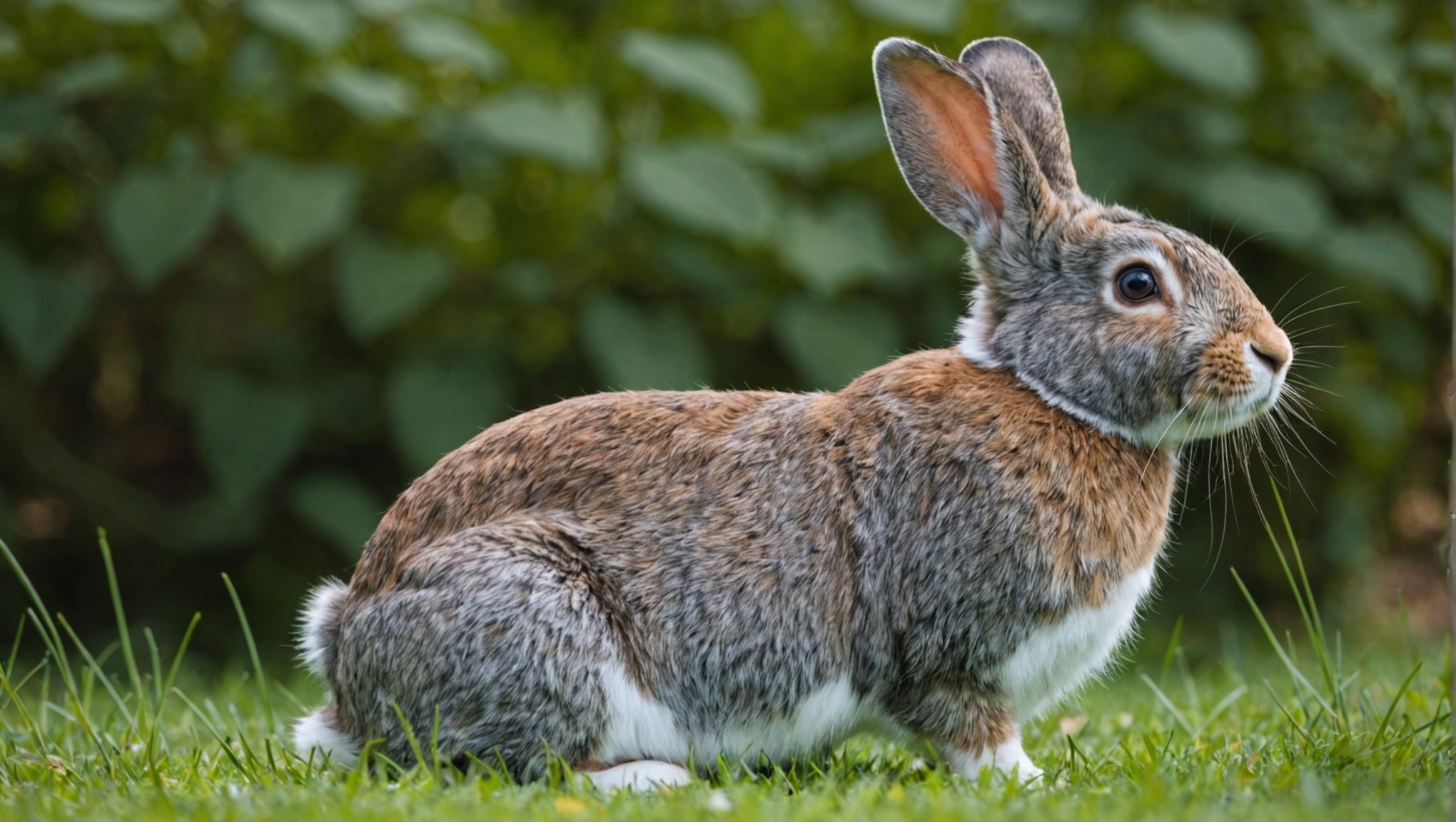Protecting your rabbit from myxomatosis is essential for their health and well-being. This viral disease poses a serious threat, but with proactive strategies, you can minimize risks. Understanding vaccination, environmental factors, and hygiene can empower you to create a safer space for your pet. Discover effective methods to enhance your rabbit’s resilience and ensure a happy, healthy life, free from this potentially fatal disease. Take action now to safeguard your furry friend.
Understanding Myxomatosis in Rabbits
Myxomatosis is a serious viral disease that significantly impacts rabbit health. It is caused by the Myxoma virus and is particularly devastating due to its rapid progression and high mortality rate among affected rabbits. Understanding the stages of the disease is crucial for early detection and management.
Also to see : Crafting a Secure Outdoor Habitat for Pygmy Goats in the Picturesque Welsh Countryside
Common Symptoms and Stages
The disease typically begins with symptoms such as swelling around the eyes, ears, and genitals. As it progresses, rabbits may exhibit lethargy, loss of appetite, and respiratory distress. Recognizing these symptoms early can be the difference between life and death for infected rabbits.
Transmission Methods and Risk Factors
Myxomatosis is primarily transmitted through biting insects, such as mosquitoes and fleas, which carry the virus from infected to healthy rabbits. Direct contact with an infected rabbit or contaminated objects can also spread the disease.
In parallel : Essential Care Tips for Sphynx Cats: Thriving in the Chilly British Climate
- Risk factors include:
- Living in areas with high insect populations
- Close proximity to wild rabbits
- Lack of vaccination
Incorporating preventive measures, such as insect control and vaccination, can significantly reduce the risk of myxomatosis. Understanding these transmission methods and risk factors is vital for protecting your rabbits from this devastating disease.
Vaccination Options for Rabbits
Exploring rabbit vaccination options is essential for safeguarding your pets against myxomatosis. Vaccination serves as a crucial line of defense, significantly reducing the risk of infection.
Importance of Vaccination
Rabbits are vulnerable to myxomatosis, a disease with a high mortality rate. The myxomatosis vaccine is a preventive measure that can protect your rabbit from this deadly virus. Vaccination not only helps in preventing the disease but also aids in controlling its spread among rabbit populations.
Available Vaccination Options and Schedules
There are several myxomatosis vaccine options available, each with specific schedules. Typically, rabbits receive their first vaccination around six weeks of age, with boosters administered annually. Some vaccines offer combined protection against other diseases like Rabbit Haemorrhagic Disease (RHD).
Vaccination Schedule:
- Initial vaccination: 6 weeks of age
- Booster: Annually
Consultation with Veterinarians
Consulting with a veterinarian is vital to tailor a vaccination plan that suits your rabbit's specific needs. Veterinarians can provide expert guidance on the most suitable rabbit vaccination options and ensure your pet receives timely and effective care. This proactive approach is a key element of comprehensive preventative care for your rabbit's well-being.
Ensuring a Clean and Safe Habitat
Maintaining a clean living environment is crucial for rabbit health. Regular cleaning and disinfecting not only prevent disease but also promote overall well-being. A dirty habitat can harbor bacteria and viruses, increasing the risk of infections like myxomatosis.
Best Practices for Rabbit Care
To ensure optimal rabbit habitat cleanliness, follow these guidelines:
- Daily Maintenance: Remove uneaten food and clean litter boxes to prevent odors and bacteria build-up.
- Weekly Cleaning: Disinfect cages and play areas with pet-safe cleaners.
- Monthly Deep Clean: Thoroughly wash all accessories, such as food bowls and toys, to remove hidden germs.
Creating a safe outdoor space is equally important. Ensure that the area is secure, with no exposure to predators or harsh weather. Use fencing to prevent contact with wild rabbits and reduce the risk of disease transmission.
Disease Prevention Tips
Implementing these rabbit care tips can significantly reduce health risks:
- Regularly check for signs of illness.
- Maintain a consistent cleaning schedule.
- Provide a balanced diet to boost immunity.
"A clean rabbit habitat is a healthy habitat."
By adopting these practices, you not only enhance the quality of life for your rabbits but also contribute to effective disease prevention.
Insect Control Measures
Implementing effective strategies is essential for protecting rabbit health.
Identifying Common Pests
Understanding the common pests that pose a risk to rabbits is crucial for effective insect control. Mosquitoes, fleas, and ticks are the primary culprits, as they can transmit dangerous diseases like myxomatosis.
Effective Insect Control Strategies
To safeguard your rabbits, consider these insect control strategies for both outdoor and indoor settings:
- Outdoor Measures: Use mosquito nets and screens to prevent insect entry. Regularly mow grass and eliminate standing water to reduce breeding sites.
- Indoor Measures: Install window screens and use fans to deter flying insects. Keep the habitat clean to minimize flea infestations.
Natural and Chemical Pest Management Options
There are various pest management options available, ranging from natural to chemical solutions. Natural remedies, such as diatomaceous earth and essential oils, offer a gentle approach to parasite prevention. Chemical treatments, like insecticides and flea collars, provide more robust protection but require careful usage to avoid harm to rabbits.
"Effective insect control is a cornerstone of rabbit health."
By utilizing these pest management techniques, you can create a safer environment for your rabbits, ensuring their well-being and reducing the risk of disease transmission.
Dietary Considerations for a Healthy Immune System
Supporting rabbit health through nutrition.
Importance of a Balanced Diet
A balanced diet is essential for preventing diseases in rabbits. Proper nutrition for rabbits helps maintain a strong immune system, protecting them from illnesses like myxomatosis. A diet rich in fiber is crucial, as it aids digestion and prevents gastrointestinal issues.
Key Nutrients for Immune Support
Certain key nutrients play a significant role in supporting rabbit health and immunity. Vitamin C and Vitamin E are vital antioxidants that help combat free radicals, while Vitamin A supports vision and immune function. Adequate intake of calcium and phosphorus is also important for bone health.
Recommended Foods and Supplements
To ensure optimal health, incorporate these foods and supplements into your rabbit's diet:
- Hay: Primary source of fiber, essential for digestion.
- Leafy Greens: Provide essential vitamins and minerals.
- Pellets: Offer a balanced mix of nutrients.
- Supplements: Consider multivitamins if dietary gaps exist.
"A well-rounded diet is the foundation of a rabbit's health."
By focusing on these dietary considerations, you can enhance your rabbit's immune system, reducing the risk of disease and promoting overall well-being.











